|
|
|||||
This week in Aftershocks: Water everywhere, water nowhere, two tales of climate change wreaking havoc on people’s lives. Also, the US and UK have rediscovered Africa (slow clap). |
|||||
|
|
|||||
Top newsFreddy’s nightmare: Cyclone Freddy, the world’s longest-lasting tropical cyclone, killed over 200 people in Malawi and Mozambique during its second landfall. The storm left death, destruction, displacement, and the threat of disease in its wake. Malawi, which was already battling to contain a cholera outbreak before the storm, now faces further spread of the waterborne disease. A striking reminder that the climate crisis is also a health crisis. Waterlogged...: Four consecutive years of flooding have left over 7% of South Sudan under water, an area roughly the size of Slovakia. The severe flooding has combined with ongoing conflict to displace 2.3 million people. Hundreds of villages and wide swaths of farmland have been submerged. More than 7.7 million people will face severe food shortages this year. The flooding is so widespread and persistent that some farmers are adapting and learning to grow rice to survive. ... and without water: Meanwhile, 1,500 kilometres to the east in Somalia, the country’s longest and most severe drought has left more than 8 million people at risk of hunger. Will donors step in to help? Well, just over half of all UN humanitarian appeals last year were funded (compared to 80% of Ukraine’s appeal), and G7 countries are diverting aid money to pay for in-country refugee costs stemming from the war in Ukraine, so.... 🎲 Charmed, I’m sure: The US’s recent charm offensive across Africa continued this week with Secretary of State Antony Blinken paying a visit to Ethiopia and Niger. Blinken’s trip marks the fourth visit by a high-ranking member of the Biden administration to the continent this year. And there is more to come. Vice President Kamala Harris will take the baton from Blinken later this month when she travels to Ghana, Tanzania, and Zambia. And a trip by President Joe Biden is expected later in the year. Let’s hope that one consequence of the advent of a multipolar world is US leadership continuing to prioritise relationships with African countries and treating them as partners in global affairs, rather than afterthoughts. Diplomacy SOS: The UK is mounting its own charm offensive with Africa as it seeks opportunities to bolster its flagging post-Brexit economy. The government will host the second UK-Africa investment summit in April. Helping African countries adapt to and become more resilient to climate change is a key UK focus. For its part, the UK government has come under fire for a proposed plan to deport nearly all migrants arriving by boat, preventing them from claiming asylum (attention: future climate migrants). Good summit outcome: investment deals to support climate adaptation and job creation in African countries. Bad summit outcome: investment deals linked in any way to deporting asylum seekers to African countries (gives the side-eye to Rwanda). Bad medicine: Gambian doctors had to wait seven weeks to confirm their suspicions of a link between imported cough syrups and a spike in child deaths from kidney failure. The reason for the hold up? The Gambia has no quality control laboratory to test medicines for toxins. By the time authorities received conclusive results of contamination from a lab in Switzerland, almost 70 children had died. Substandard and counterfeit drugs are a well-documented problem across Africa. The WHO estimates the continent accounts for up to 42% of the world’s fake drugs. It doesn’t help that drug counterfeiting has become a $200 billion business, “more lucrative than narcotics.” Without adequate domestic means of quality assurance, many African countries are at the mercy of drug manufacturers that may be cutting corners. As the Gambia works to introduce more regulatory oversight of imported medicines, it might find a good blueprint in Nigeria’s fight against fake drugs. Access denied: Only 22% of people in sub-Saharan Africa with access to mobile internet were using it at the end of 2021, says the World Bank. The low use of digital technologies undermines the positive impact that internet availability could have on jobs and welfare in Africa. Only 5% of extremely poor households in the region access the internet. The World Bank is urging African governments to prioritise investments and policies that increase internet coverage. If only there was a way for the Bank to scale up its investments to support those efforts… (frantically points at the chorus of voices offering sensible plans aimed at doing just that. And maybe the Bank is starting to listen...?). From the ONE Team
The numbers
 |
|||||
|
|
|||||
Quote of the week
|
|||||
|
|
|||||
What you should read, watch & listen to
|
|||||
|
|
|||||
A look ahead22 March: World Water Day 22 - 24 March: The UN Water Conference in New York City, US 24 March: World Tuberculosis Day |
|||||
|
|
|||||
The ONE Campaign’s data.one.org provides cutting edge data and analysis on the economic, political, and social changes impacting Africa. Check it out HERE. |
|||||
|
|
|||||
|
|
|||||
Did you like today's email?Loved it Mehhh Hated it |
|||||
|
|
|||||
Did you like today's email?Loved it Mehhh Hated it |
|||||
|
|
|||||
Wie hat dir dieser Newsletter gefallen?Richtig gut! Ging so… Überhaupt nicht. |
|||||
|
|
|||||
|
|||||
|
|||||
|
|||||
|
This email was sent by ONE.ORG to test@example.com. You can unsubscribe at any time. ONE Campaign |
